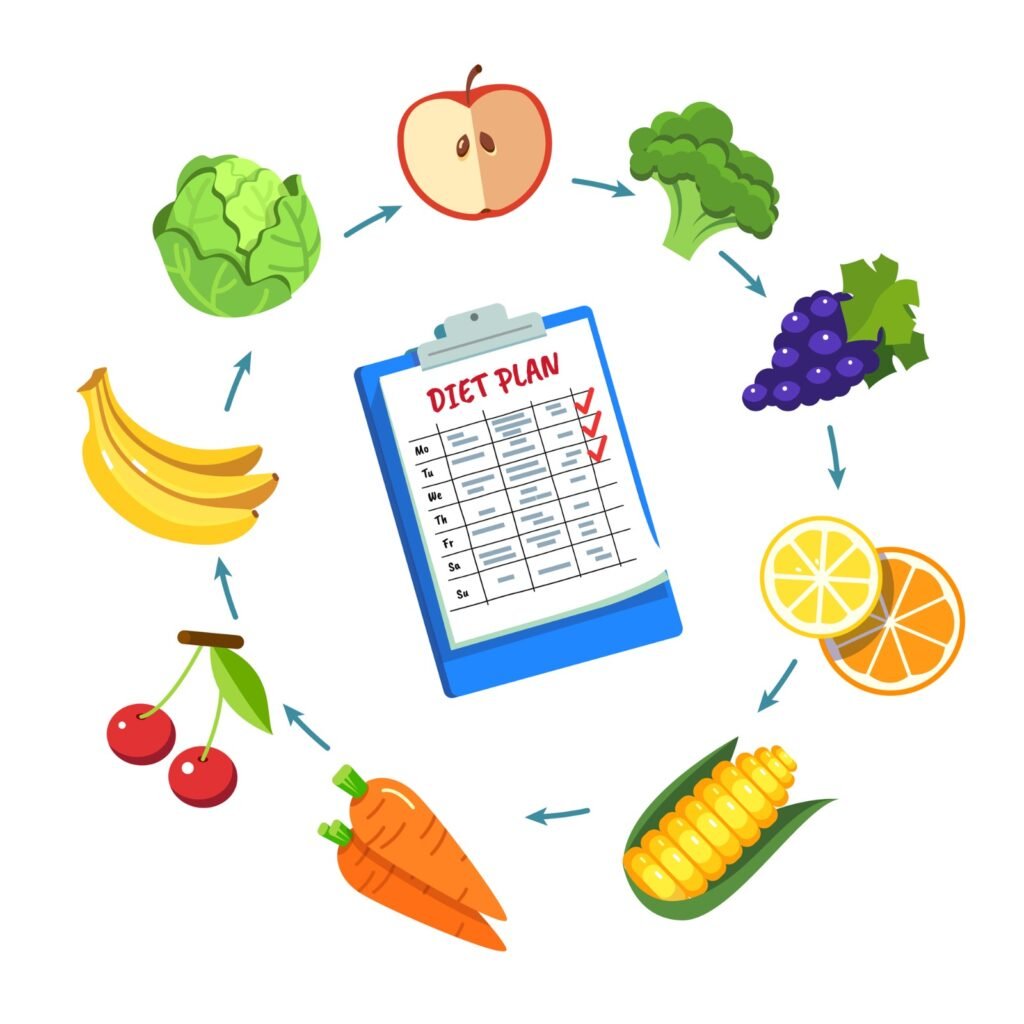
Maintaining good health starts with what we put on our plate. While it’s common to hear phrases like “eat more fruits and vegetables,” the concept of a balanced diet goes far beyond that. It’s about consistently giving your body the nutrients it needs to perform, repair, grow, and thrive — every single day.
Let’s explore what a balanced diet truly means, why it’s essential, and how you can start implementing it into your daily routine without feeling overwhelmed.
What Is a Balanced Diet?
A balanced diet is one that provides the right amounts of macronutrients (carbohydrates, proteins, fats) and micronutrients (vitamins and minerals), along with plenty of water. When these are consumed in proper proportion, your body is better equipped to function efficiently, stay energized, and prevent illness.
Key Components of a Balanced Diet
- Carbohydrates
These are the body’s primary energy source. Choose complex carbs like whole grains, fruits, vegetables, and legumes instead of refined sugars and white flour. - Proteins
Essential for muscle repair, immune function, and tissue health. Include sources like lean meats, fish, eggs, dairy, tofu, lentils, and beans. - Fats
Healthy fats are crucial for brain function, cell growth, and hormone production. Focus on unsaturated fats from nuts, seeds, avocado, and olive oil, and limit saturated or trans fats. - Vitamins and Minerals
These are critical for immune health, bone strength, and metabolic functions. A colorful diet filled with various fruits and vegetables usually ensures a good vitamin and mineral intake. - Water
Staying hydrated helps with digestion, energy levels, and body temperature regulation. Most adults should aim for at least 8 glasses of water a day, though individual needs may vary.
Sample Balanced Meal Plan
If you’re wondering how a balanced diet looks in real life, here’s a simple day plan that provides energy, nourishment, and satisfaction without being restrictive.
Breakfast:
Oatmeal made with low-fat milk, topped with sliced banana and a sprinkle of almonds
Mid-Morning Snack:
A small handful of walnuts or a boiled egg
Lunch:
Grilled chicken breast served with brown rice and a side of steamed mixed vegetables
Afternoon Snack:
Greek yogurt with a few fresh berries
Dinner:
Baked salmon with quinoa and sautéed spinach or broccoli
Evening (Optional):
Chamomile tea or a small piece of dark chocolate for a calming end to the day
Why a Balanced Diet Matters
The benefits of a balanced diet go far beyond weight management. Here are just a few long-term health perks:
- Supports Healthy Weight: Reduces the risk of obesity and helps maintain ideal body composition
- Boosts Brain Function: Nutrients like omega-3s, B vitamins, and antioxidants promote memory and focus
- Prevents Chronic Diseases: A well-rounded diet lowers the risk of diabetes, heart disease, and high blood pressure
- Improves Mood and Energy: Stable blood sugar levels and proper nutrition can enhance emotional well-being
- Strengthens Immunity: Key vitamins and minerals help protect the body from infections and illnesses
Tips to Maintain a Balanced Diet Daily
- Plan Your Meals Ahead of Time
Meal prepping makes it easier to avoid processed and fast foods during busy days. - Watch Portion Sizes
Overeating healthy food is still overeating. Use smaller plates and pay attention to hunger cues. - Limit Sugary Beverages and Junk Food
These offer little nutritional value and can interfere with blood sugar and energy levels. - Eat a Variety of Foods
Don’t stick to the same fruits and veggies every day. Rotate foods to get a full range of nutrients. - Stay Hydrated
Keep a water bottle with you and sip regularly throughout the day.
Final Thoughts
Achieving a balanced diet doesn’t require complicated rules or expensive superfoods. It’s about making thoughtful choices every day — adding more natural, whole foods to your meals, practicing moderation, and listening to your body.
Start small, stay consistent, and focus on progress — not perfection. The benefits you’ll feel in your energy, focus, and overall health will make it more than worth the effort.
